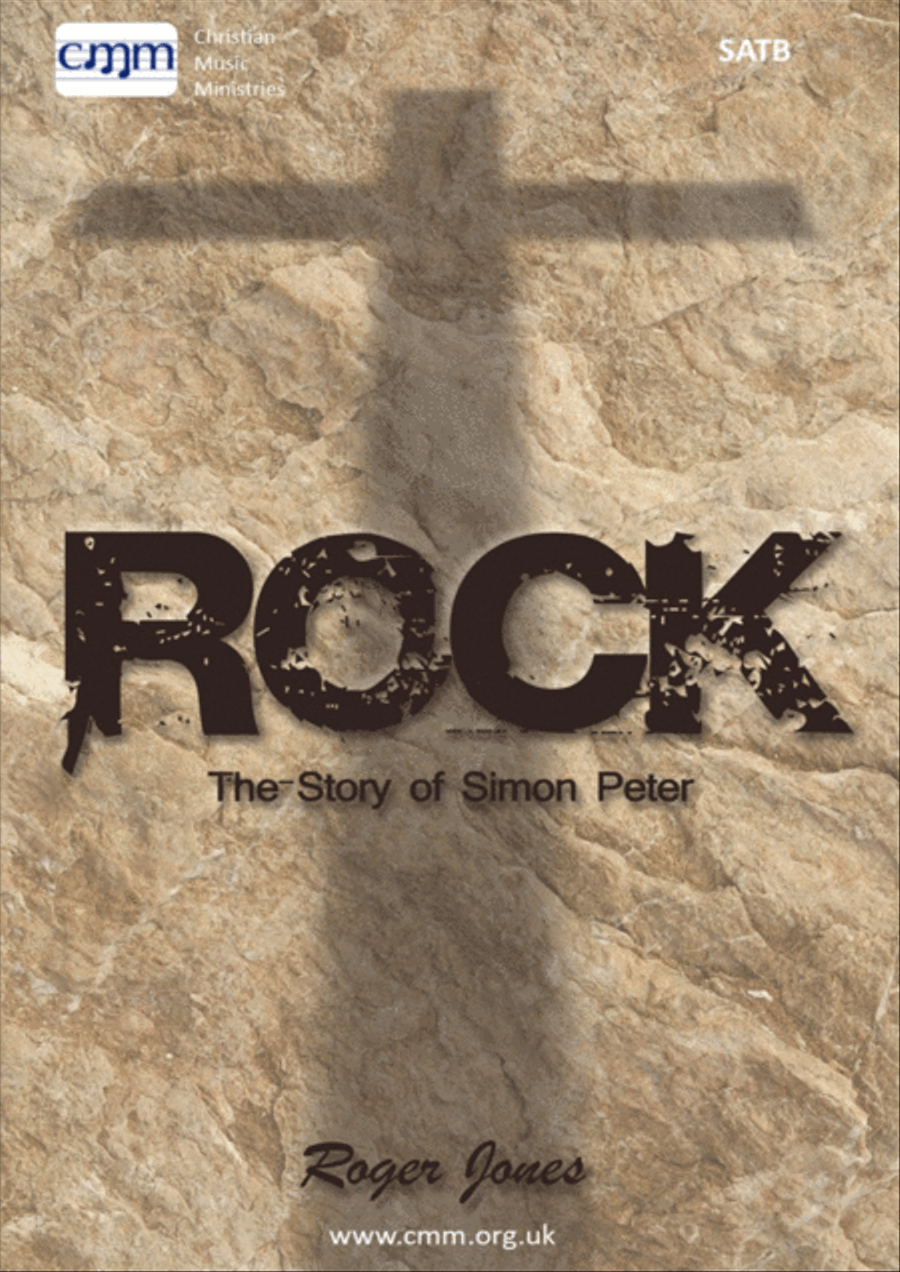Choral Choir (SATB) - Level 3 - Digital Download SKU: A0.927456 Composed by Roger Jones, Alison Fuggle. Arranged by Annie Routley. Christian,Easter,Musical/Show,Praise & Worship,Sacred. Octavo. 98 pages. Christian Music Ministries #6135917. Published by Christian Music Ministries (A0.927456). Rock - a worship musical.Full piano score with SATB choir, solo parts and narration.Starting in Caesarea, Peter's story unfolds in flashback.From fishing, his 3 years on the road alongside Jesus and the disciples, his triumphs and failures. Jesus calls Peter 'the Rock' - but we see that only in Christ, and filled with His Spirit, is Peter on solid ground.Synopsis Traditional words introduce the theme of the Musical: Jesus is our ROCK OF AGES, but the story starts IN CAESAREA BESIDE THE SEA. Here, centurion Cornelius declares I’ve had a vision - but who can explain it, who can help? Cornelius’ household tell of Simon Peter, a disciple of Jesus, and we are taken back to Galilee when Peter, a fisherman, WORKING IN THE FAMILY BUSINESS, hears Jesus’ call to leave your nets and leave your boats. He responds I WILL FOLLOW YOU. For three years Peter follows Jesus, and when challenged declares YOU ARE MESSIAH, the Son of the living God! Jesus replies On this rock I will build my church, then, ominously, points towards Jerusalem. He and his followers eventually arrive in the city at Passover, and during the meal they wonder IN THIS BREAD, IN THIS WINE, is there love for me? At first reluctant, Peter allows Jesus to wash his feet. Events turn against Jesus; he is arrested, and Peter is afraid. The taunt SURELY YOU MUST HAVE BEEN WITH HIM sees Peter denying he ever knew Jesus. Then their eyes meet across the courtyard, and Peter is devastated by his own failure. But even at such an awful time as this, THE LOOK OF LOVE contains acceptance and hope. WERE YOU THERE WHEN THEY CRUCIFIED MY LORD? Peter wasn’t - he was in hiding along with many of the disciples. But after the resurrection, Jesus greets Peter and the others in Galilee: THIS IS THE PLACE – I am the Lord who comes to meet you here. Jesus asks: SIMON PETER, DO YOU LOVE ME? After being asked three times Peter reaches reality: Lord, you know everything … you know how much I love you! and receives the commission Feed my sheep. Peter and the disciples return to Jerusalem, and wait for the promised Holy Spirit. At Pentecost the Spirit comes, and as A CHOSEN PEOPLE, the followers of Jesus receive his power. Peter preaches, and thousands believe and respond JUST AS I AM … O Lamb of God I come. The Church is born and in the power of the Spirit begin WORKING IN THE FATHER’S BUSINESS, doing the things that Jesus did! Peter eventually arrives IN CAESAREA BESIDE THE SEA. He shares his vision with Cornelius and his household, and declares God has no favourites … you can be saved too … if you believe in Jesus. They believe, receive the power of the Spirit, and Gentiles also become members of the Chosen People, called out of darkness into wonderful light! Peter’s vision is fulfilled – the Gospel is for all who believe in Jesus. Peter declares HE IS THE STONE that the builders rejected … on Jesus the ROCK I will build my life! .
